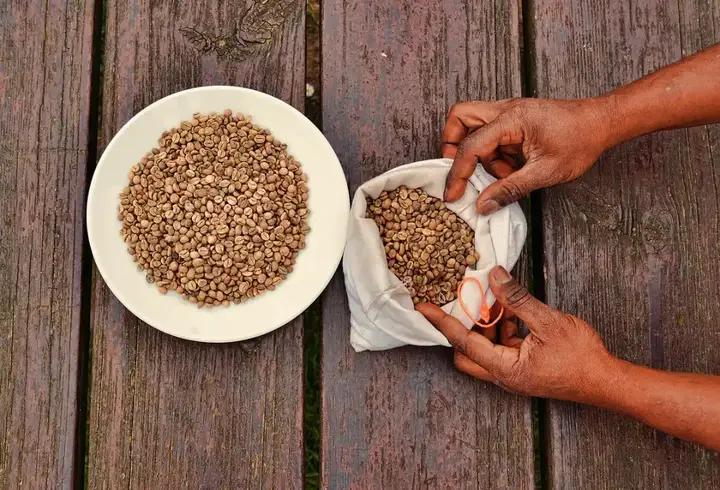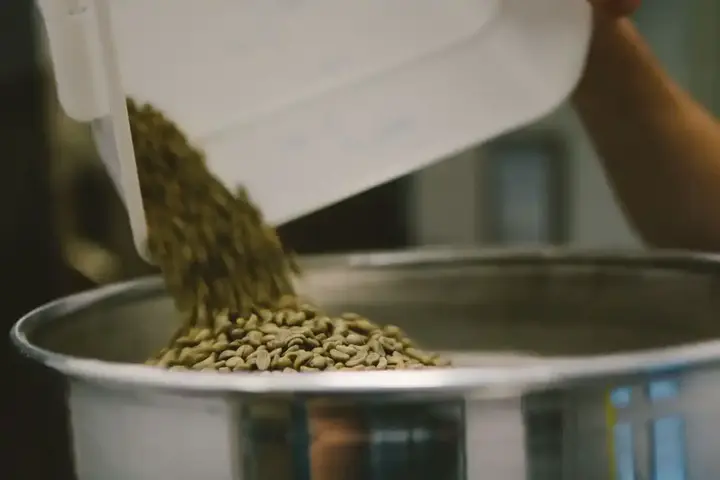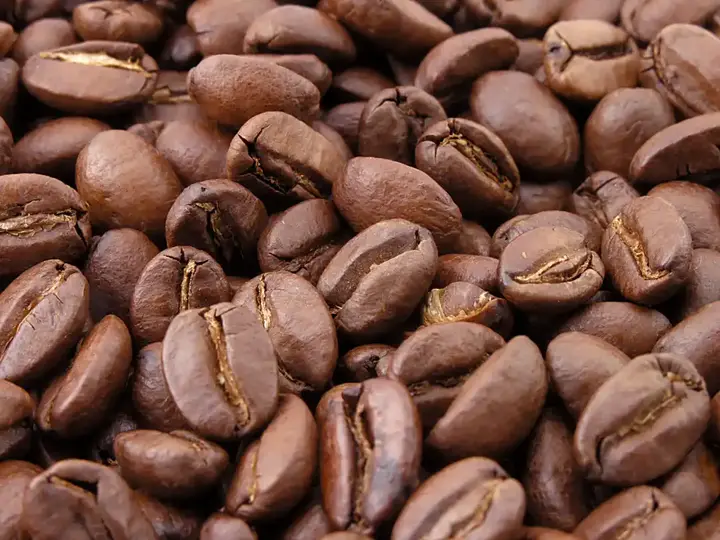Coffee: Human Ambrosia
Coffee, often referred to as the "nectar of the gods," has been a beloved drink for centuries. Its rich aroma, strong flavor and refreshing effects have made it a staple in many cultures around the world. This article delves into the journey of great coffee, from its historical origins to its cultural significance, production process, and health benefits.
Show key points
- Coffee has a long and fascinating history that traces back to ancient Ethiopia, where it was discovered by a goat herder named Kaldi around 850 AD.
- Across multiple cultures, coffee holds deep significance and is often associated with hospitality, tradition, and intellectual exchange.
- The production of coffee involves detailed stages from seed germination to fruit harvesting, processing, and eventually roasting into green coffee.
- ADVERTISEMENT
- Regular consumption of coffee can provide numerous health benefits, including reduced risk of type II diabetes, heart failure, and neurodegenerative diseases.
- Globally, coffee is one of the most consumed beverages, driving a massive industry that contributes hundreds of billions of dollars and millions of jobs to the global economy.
- Coffee cultivation has notable environmental consequences, including deforestation, water pollution, and habitat destruction, particularly due to sun-grown farming methods.
- A variety of brewing techniques, such as French press, espresso, and Aeropress, offer diverse experiences in flavor, strength, and texture, reflecting the complexity of coffee as a beverage.
Introduction

Coffee, often referred to as the "nectar of the gods," has been a beloved drink for centuries. Its rich aroma, strong flavor and refreshing effects have made it a staple in many cultures around the world. This article delves into the journey of great coffee, from its historical origins to its cultural significance, production process, and health benefits.
Recommend
Historical origins

The history of coffee dates back centuries of ancient oral traditions in modern Somalia, Ethiopia and Yemen. Legend has it that coffee was discovered by an Ethiopian goat herder named Kaldi around 850 AD. He noticed that his goat became active after eating fruit from a particular tree. Curiously, he tried the fruit himself and experienced a boost of energy. This led to the discovery of coffee and the eventual development of the coffee industry.
By the fifteenth century, coffee made its way to Mecca and was known in the Ottoman Empire. Despite some controversy over its permissibility in Islamic law, coffee quickly spread among Arabs and their neighbors. Cafes known as "coffee khane" appeared in Mecca in the fifteenth century and in Constantinople (present-day Istanbul) in the sixteenth century. These institutions became popular meeting places where educated men often met to talk, play games, and discuss politics.
Cultural significance

Coffee carries deep cultural significance in different parts of the world. They often symbolize hospitality, society and tradition. Different cultures have unique rituals and ceremonies surrounding coffee, which plays a central role in their social interactions. In Ethiopia, the home of coffee, elaborate coffee ceremonies are an integral part of community life. In the Middle East, especially in countries such as Turkey and Saudi Arabia, coffee plays an important role in hospitality. Serving coffee to guests is a gesture of warmth and generosity. In Western Europe, cafes have become social, artistic and intellectual centres. In the late seventeenth and eighteenth centuries, London's cafés became popular meeting places for artists, writers and social figures, as well as centres of political and commercial activity.
Production process

Coffee production is a delicate process that begins with the cultivation of coffee seeds. Seeds germinate about two and a half months after planting. Coffee plants are grown within what is known as the coffee bean belt, located between the tropics of Cancer and Capricorn. When the coffee tree reaches maturity, it begins to produce fruits in clusters along its branches. The fruit, known as coffee cherry, turns from green to red, yellow or orange when ripe and ready to harvest. Harvested cherries undergo processing through three techniques: dry or "natural" process, wet (washed) process, and hybrid process called semi-washed method, or "natural powder". The coffee resulting from these processes is called green coffee, which is then ready for roasting.
Health Benefits

Coffee is not just a delicious drink; it also offers many health benefits. Regular coffee consumption may be associated with a lower risk of type II diabetes. It can also support brain health and protect against certain neurodegenerative disorders, including Alzheimer's disease and Parkinson's disease.
Coffee may help protect the liver and has also been linked to a lower risk of heart failure. Furthermore, regular coffee drinkers are less likely to die from some of the leading causes of death, including coronary heart disease, stroke, diabetes, and kidney disease.
Global consumption and economic impact

Coffee is one of the most widely consumed beverages in the world. In 2021/2022, nearly 176 million 60-kilogram bags of coffee were consumed worldwide. The highest annual consumption per capita occurs in Scandinavia, where long, dark and cold winters make coffee highly valued. The economics of coffee production have changed in recent years, with prices falling in the international market and increasing cost of inputs. The overall economic impact of the U.S. coffee industry in 2022 was $343.2 billion, an increase of 52.4% from 2015. Consumers spent nearly $110 billion on coffee in 2022. The coffee industry is responsible for more than 2.2 million jobs in the United States and generates more jobs. More than $100 billion in wages.
Environmental impact

Coffee production has a significant environmental impact. From soil erosion and deforestation to water pollution, the industry can have devastating consequences for ecosystems around the world. The shift to sun-grown coffee has cleared more than 2.5 million acres of forests in Central America. According to some estimates, every cup of coffee consumed destroys approximately one square inch of rainforest, making it a major cause of rainforest destruction.
Fermentation methods

There are many ways to brew coffee, each with its own unique taste and texture. In general, the coffee brewing process can be divided into four categories: boiling methods, soaking methods, distillation methods, and pressure brewing methods. Some common brewing methods include:
• French press: This method produces a fairly rich coffee and can be a good way to produce several cups at once.
• Aeropress: A soaking method that produces a strong, smooth and rich drink.
• Overhead casting: This drip method produces a clean and delicate cup of coffee.
• Espresso: a pressing method that produces concentrated, full-body coffee

In conclusion, coffee is a complex and wonderful drink with a rich history, diverse brewing methods and significant economic and environmental impacts. Whether you're a coffee lover or a coffee lover, there's always more to learn and appreciate about this great drink.








